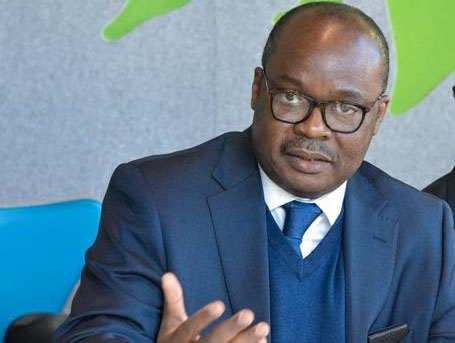Dr. Ernest Addison
Ghana’s Gross International Reserves (GIR) climbed to US$5.7 billion on Friday, May 19, 2023, equivalent to 2.6 months of import cover, thanks to the IMF-backed programme and the receipt of the first tranche of the disbursement.
Governor of the Bank of Ghana (BoG), Dr. Ernest Addison, who disclosed at the Monetary Policy Committee (MPC) press conference in Accra yesterday, said the reserve assets in the balance of payments stood at US$5.1 billion at the end of March 2023.
He explained that this represented a 2.4-month import cover, compared with the End-December 2022 stock position of US$6.2 billion, equivalent to 2.7 months of import cover.
He added that the GIR, excluding oil funds, encumbered and pledged assets, stood at US$1.4 billion, whereas the Net International Reserves (NIR), as of March 2023, stood at US$2.1 billion.
Currency Gains
Dr. Addison stated that the local currency recorded some gains amid positive sentiments on developments in the economy, noting, “the Ghana cedi depreciated by 1.9 per cent in March 2023 and appreciated by 0.6 per cent, in April.”
According to him, the marginal recovery was supported by the successful conclusion of the Domestic Debt Exchange Programme (DDEP), progress made with Ghana’s external debt restructuring towards attainment of the IMF programme, weakening US dollar and muted demand pressures.
He revealed that the Committee observed that the recent global outlook remains uncertain with concerns about the potential spillovers from the recent bank failures in the US amid a credit crunch and persisting geopolitical tensions.
“Based on these downside risks, global growth is projected to remain subdued in 2023, relative to 2022. Global headline inflation has moderated in many economies, but underlying inflationary pressures remain strong due to tight labour markets and strong wage growth,” he intimated.
The BoG boss pointed out that central banks had continued to tighten policy rates, though at a slower pace and financing conditions remained somewhat tight.
“In the near term, expectations for slower policy rate hikes in the US have weakened the US dollar somewhat, supporting investor risk appetite for emerging markets and developing economies’ assets.
“The Committee acknowledged that the developments in the global economy will have implications for the domestic economy,” he asserted.
Dr. Addison said the domestic economic activity remained weak in the first quarter of 2023.
“The latest GDP data suggested some slowdown, despite the positive signals of renewed consumer and business confidence in the economy. Indications are that growth will remain below potential in the medium term,” he continued.
For him, performance of the banking sector broadly reflected the general macroeconomic operating environment as well as the impact of the DDEP as indicated in the 2022 audited financial statements.
He stated, however, that prudential returns for the first four months of 2023 have shown signs of recovery in the profitability of banks and a gradual improvement in the solvency positions, supported by the regulatory reliefs issued to safeguard stability of the financial sector.
By Ernest Kofi Adu


